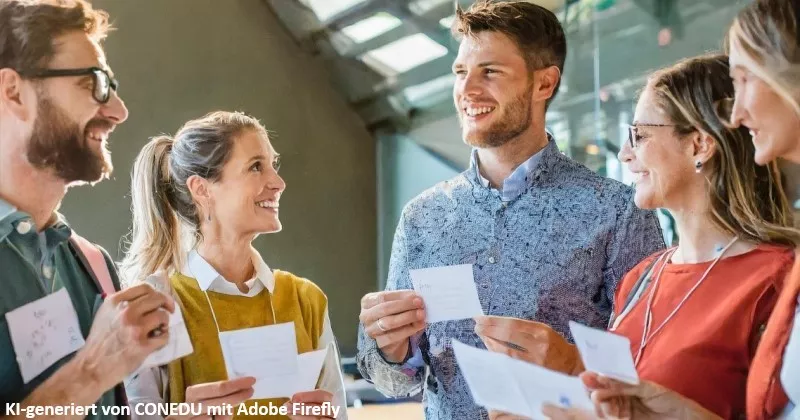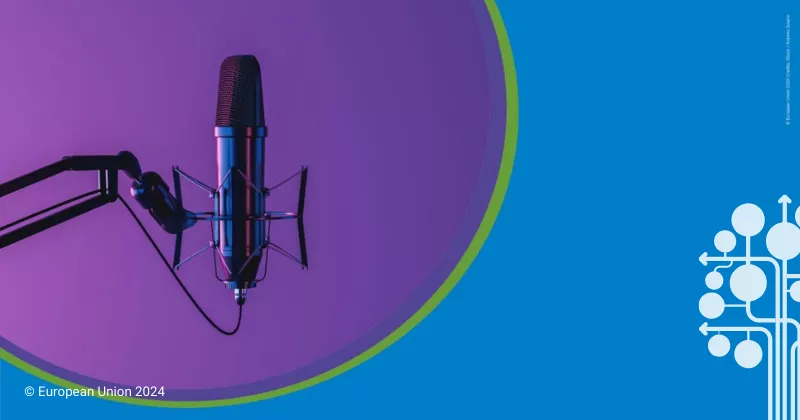Erasmus+ adult education projects promote environmental responsibility


The significance of environmental responsibility grows in adult education projects funded by the Erasmus+ programme. The aim to make green travel a norm, and it is being increasingly promoted in different ways. In the future we also expect to see more projects in which the main goal and primary themes are increasing skills and knowledge in sustainability.
Anita Varsa, Education Counsellor at the Finnish National Agency for Education, feels that it is important for all members of society to be involved in developing sustainable practices.
– Obviously production and consumption habits need to be altered to make them more ecologically sustainable. Adult learning could help promote the rapid spread of the new procedures, Varsa says.
Green travel is the new normal
Projects of the Erasmus + programme are designed to take environmental responsibility into account in all activities. The aim is to use resources reasonably and emissions coming from project activities are minimised, Anita Varsa says.
In projects involving mobility, support has been added for green travel. Terminology was altered at the beginning of this year in the Erasmus+ activities: today the primary meaning of green travel is lower-emission travel by train, bus, or car-pooling. Travel by plane, ship, or alone in a car is something other than green travel. The aim of this is to make green travel the norm, instead of flying, for example.
As overland travel is slower, it is possible to apply for more travel days for it.
– It seems that there is more interest in travel involving lower emissions in the projects, Varsa says.
“Abroad without knowledge of foreign languages” project lowers the threshold to travel
The Sastamala Community College launched” Abroad without of foreign languages knowledge” course with the support of the Erasmus+ programme. The course offers the travel experience to people who would otherwise have few possibilities to go abroad. On the course the group makes plans and preparations for the trip in advance and at the destination, activities are arranged in cooperation with a local community college.
Principal Sini-Mari Lepistö says that ecological sustainability takes on an important role in the activities of the college, so green travel on this course was the obvious choice from the outset. The form of travel can be challenging. On the way to Italy the group missed several trains when their bus ran behind schedule.
– Nevertheless, we managed, and everything ultimately worked out, says Anni Rainio, one of the teachers on the course.
Lepistö and Rainio also feel that overland travel has many advantages that are missing in air travel. Countries, nature, and the languages spoken all around switch many times during the trip and there is more time to interact with the others. This provides a deeper learning experience.
– Crossing the Alps by train is so delightful each time that both course members and the teachers stay glued to the window taking pictures of the landscapes, Rainio says.
In the student exchange many thresholds in the way of foreign travel are crossed. Teacher Anni Rainio says that during the course people see that travel is a rewarding experience and that rail travel in Europe is not so difficult after all.
–In their feedback the students have expressed that they gained courage to embrace the unknown. They have also noticed being capable of doing things that they have not previously dared to try, Rainio says
Activist collaboration in Germany and Denmark
Also taking part in the Erasmus+ programme is the KSL Study Centre which has organised training and work shadowing in Germany and Denmark. The purpose of the “Strengthening Democracy with Education” project was to share good practices among European colleagues and to form networks.
Training producer Krissu Sirola-Korhonen says that green travel supports the goals of the project.
– Travelling by train gave us more time to settle down and discuss a topic and to deal with issues of the project. During the train trip we also unexpectedly met a collaborative partner, and the slower conveyance gave us a chance also for this kind of meeting, Sirola-Korhonen said.
Sirola-Korhonen sees working hour arrangements as a challenge of green travel. When it takes time to reach a destination, there is less time to spend at the destination itself. She suggests utilising travel time for work. For example, it was possible to reflect on the train journey as part of the project.
The project brought the KSL Study Centre new European collaborative partners. The Study Centre organized activities, including an online workshop on handcraft activism together with international partners. A project is now being planned in which students of the Study Centre would go abroad – overland, naturally.
– Those participating in previous trips found green travel to be important, and it was not seen as too difficult. I encourage the projects to consider the possible benefits. It is also important to support green travel flexibly, Sirola-Korhonen says.
Environmental responsibility – an increasingly common theme for projects
Development of skills and knowledge in environmental and sustainability matters can also be a theme of the entire project. Education Counsellor Anita Varsa hopes that increasing skills and knowledge in sustainability would be used more frequently for the content of projects.
For example, the projects can be used to develop activities of adult education units together with international partners. This can occur, for example, by sharing practices that have proven to be successful, or by creating educational content together. Anita Varsa says that when examining the contents of projects, it has been seen that much can be achieved even through small changes in activities.
The programme also brings Europeans together to advance sustainable development.
– Exchanging ideas with foreign colleagues helps us experience climate change as a challenge that we share. We are not alone with it, Anita Varsa winds up.




